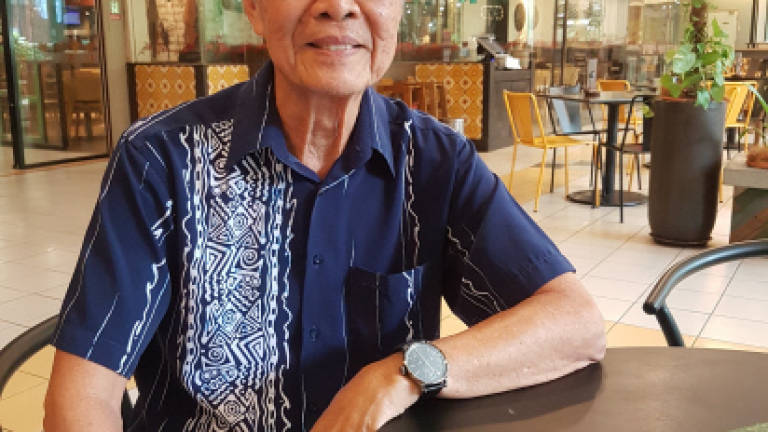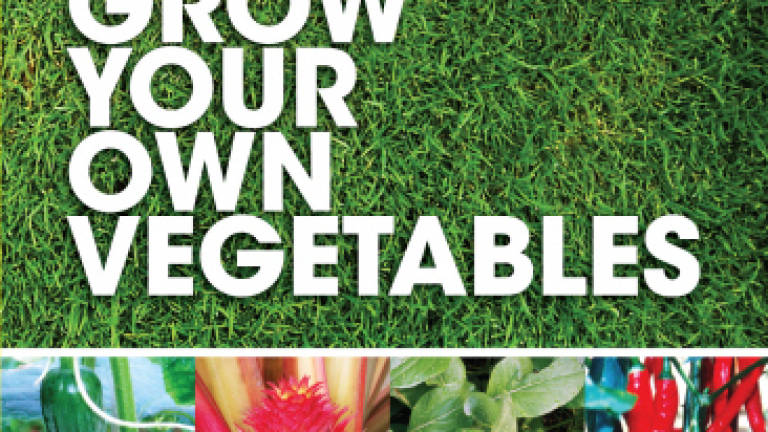Down to the soil


DESPITE retiring over two decades ago from his job as a research geneticist at MARDI (Malaysian Agricultural Research and Development Institute), Dr Chew Boon Hock (below) is still firmly passionate about the subject of agriculture.
Chew was the head of the Rice Research Unit, and later served as head of the Plant Science Unit and Genetics Unit. He also led a team from Universiti Pertanian Malaysia to exploit the use of effective microbes in sustainable microbial agriculture for the new century.
Now aged 77, Chew keeps himself occupied by working as freelance consultant for several organic farms in Malaysia and Singapore, and also for companies dealing in organic products.
He also frequently gives talks and seminars on all aspects of growing organic – farming, gardening, food and nutritional standards.
Recently, Chew published his first book, Grow Your Own Vegetables. He was perhaps inspired by his wife Chia Joo Suan, an author herself who has written You’re What You Eat, What’s In Your Food, and Eat Well, Live Well.
Grow Your Own Vegetables is actually a compilation of articles written by Chew that were published between 2003 and 2008 in Flavours magazine.
“I updated my columns and added a few new chapters,” Chew explained.
The book will benefit those who want to grow their own vegetables, but are clueless as to where to start.
During our interview session, Chew expressed great concern for people across the world who are affected by pesticide residue in their food.
“Farmers spray pesticide because they think that it is the only way. During my time as a geneticist, I thought if we came up with crops that were pest-resistant, it would work, [and] the farmer would not need to spray pesticide.
Unfortunately, this resistance breaks down after a two to three years.”
Chew then realised that working with nature was a better option. “The principle is simple. If your soil is healthy, your plant will be healthy. If your plant is healthy, pests won’t affect it."
He compared this to how a healthy person is able to better resist infections.
He said traditional farmers face problems because excessive use of chemicals has killed living microorganisms in the soil.
“[Normally] soil is teaming with billions of microbes. These microbes are beneficial because they make the soil healthy. If you put a lot of chemical fertiliser, the microbes die. Now the so-called living soil, becomes dead soil.”
He said it is important to work with nature, and not damage the ecosystem by avoiding using chemicals of any kind, including chemical-based fertilisers.
He added anyone can grow their own garden. Even those living in apartments can plant in boxes outside on their balcony. He is also a big believer in community gardens, where unused land in a neighborhood can be turned into a vegetable garden.
“For organic agriculture, we have to manage the soil, not the plant. With good soil, you have a good plant. Organic farmers feed the soil so that [the plant] becomes healthy, and so whatever nutrient in the soil [makes] the plant healthy.”
Grow Your Own Vegetables teaches readers to grow a wide variety of vegetables in an organic manner. He also goes on at length about what is organic food, and what organic certification means.
It is a great book not just for beginners in gardening, but also those who want to expand their vegetable-growing repertoire.
Chew said: “This book will give you the basic foundation. Slowly, you will learn and [gain] experience. Participate in a community garden, there will be an exchange of knowledge, [and] you can learn a lot from there. Go on the Internet, and you can get a lot in information.”
Chew added that while there are a lot of vegetables that are easy to grow, one should not start with chili, because it is susceptible to many diseases.
To avoid disappointment, start with amaranth (bayam), or water spinach (kangkung), which are easier to grow and less susceptible to diseases.